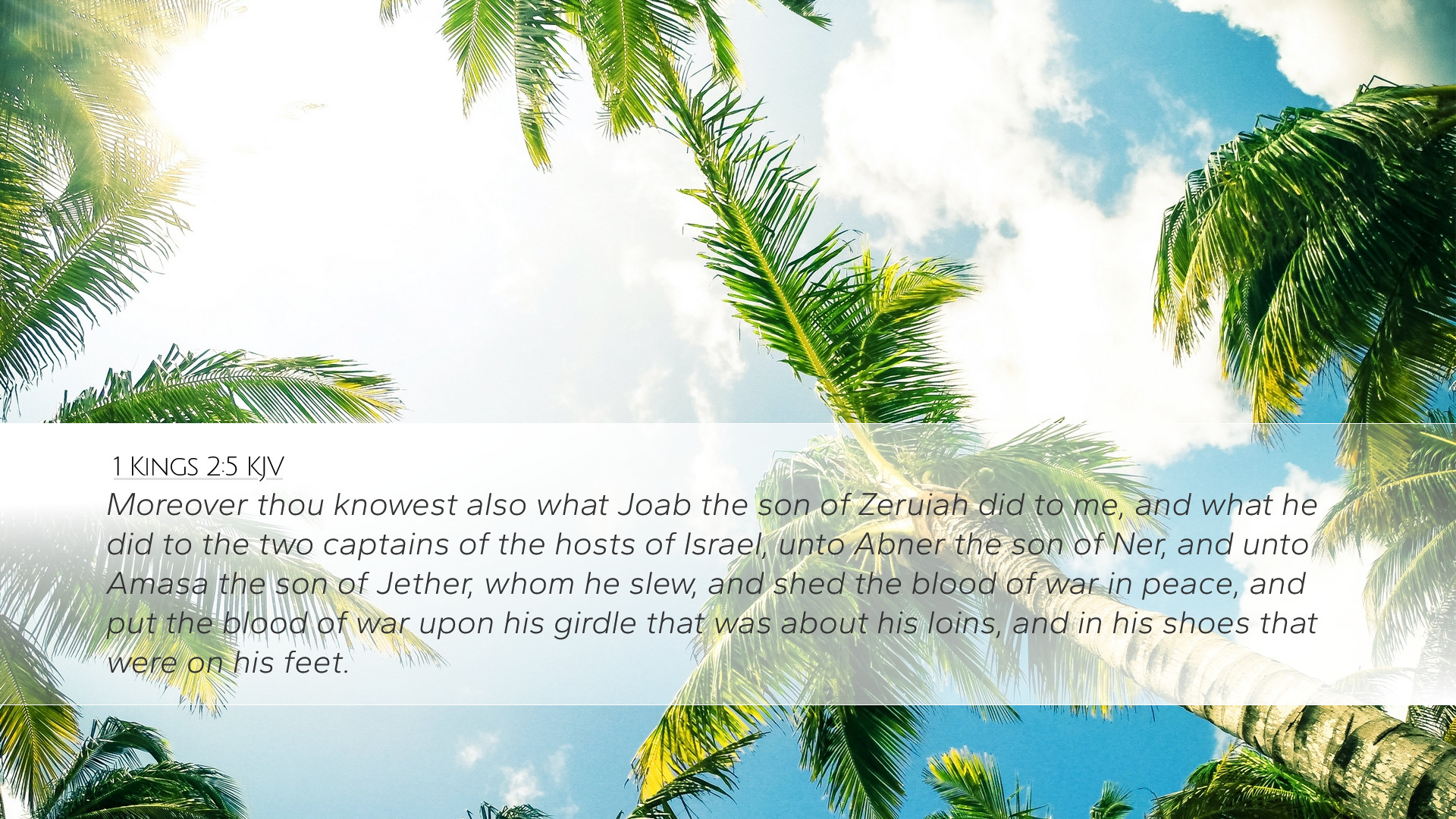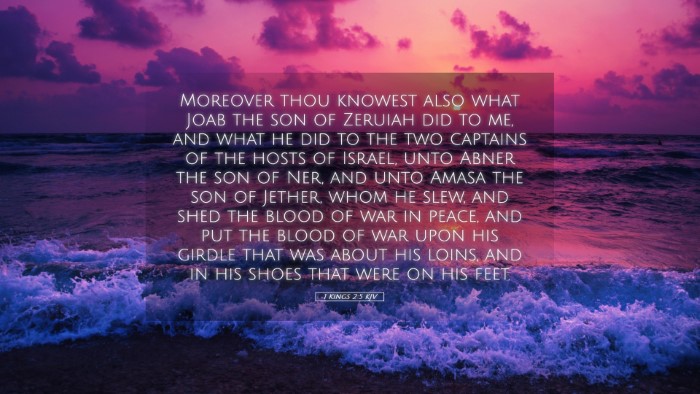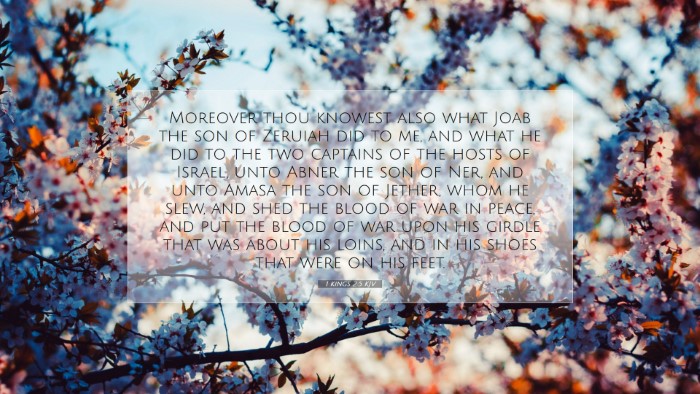Commentary on 1 Kings 2:5
Bible Verse: 1 Kings 2:5 - "Now you also know what Joab the son of Zeruiah did to me, and what he did to the two commanders of the armies of Israel, Abner the son of Ner and Amasa the son of Jether, whom he killed; and he put the blood of war in peace, and he put the blood of war upon his belt that was about his waist, and in his sandals that were on his feet."
Introduction
The context of 1 Kings 2:5 occurs at the transition of kingship from David to Solomon. This verse encapsulates a crucial historical moment reflecting the consequences of royal authority, personal vendettas, and divine justice. The insights from various commentaries provide a multifaceted understanding of the implications behind David's words and the character of Joab.
Historical Context
Matthew Henry's Commentary emphasizes the political instability following King David's reign. Joab, a powerful military leader, played a crucial role in supporting David but also acted with independence that led to significant conflict. His actions, especially the murders of Abner and Amasa, illustrate a breach of loyalty and justice that would have serious ramifications in the formation of Solomon's kingdom.
Analysis of Joab’s Actions
David’s recounting of Joab's deeds shines a light on the brutal realities of political power. Joab's killing of Abner, as noted by Albert Barnes, signifies both an act of vengeance and a means to secure his position at the top of the military hierarchy. David’s reference to Joab’s actions points towards a pattern of manipulation where Joab used his might for personal gain rather than for the peace of the nation.
Consequence of Bloodshed
- Spiritual Implications: The bloodshed not only denotes physical violence but also symbolizes moral decay within Israel's leadership.
- Divine Retribution: According to Adam Clarke, bloodguiltiness carries with it a divine implication where one cannot escape the consequences of their actions, highlighting a consistent biblical theme of justice.
David’s Rhetoric
David's statement serves as a prophetic warning to Solomon. Henry interprets this as David laying the groundwork for Solomon to understand the need for justice in his future reign. The king's acknowledgment of Joab's wrongdoing becomes a vital part of Solomon's task as he inherits the throne.
Call to Wisdom
David's admonition encapsulates the wisdom literature pervasive throughout scripture. Solomon’s eventual response requires both wisdom and courage to deal with Joab's legacy. Barnes suggests that this narrative urges a careful examination of moral integrity in leadership, as it directly affects the health of the nation.
Theological Implications
This verse opens dialog on the nature of leadership, accountability, and the divine oversight of human affairs. The backstory of Joab raises questions about redemption, justice, and the complexity of human motivations. Each commentary contributes to an understanding that although Joab’s military contributions were significant, his bloodshed led to a permanent stain upon his legacy.
The Role of Forgiveness vs. Justice
- David’s Duality: His love for Joab as a loyal general contrasts sharply with the need for justice. Clarke highlights this tension as crucial in understanding God’s relationship with humanity - balancing grace and justice.
- Solomon’s Task: Solomon's challenge becomes evident in needing to reconcile his father's affection for Joab with the number of offenses he committed.
Conclusion
1 Kings 2:5 portrays a significant crossroads in biblical history where the actions of individuals intertwine with the overarching narrative of God's covenant with Israel. The insights provided through the commentaries of Henry, Barnes, and Clarke demonstrate that the complexities of human relationships, leadership, and divine purpose coalesce in a way that continues to inform spiritual leadership today.
Final Thoughts: As current readers of scripture, this verse invites us to reflect on our own leadership qualities, the importance of justice, and the delicate balances required in positions of authority. Joab's story serves as both a warning and a lesson for all who aspire to lead with integrity and righteousness.


